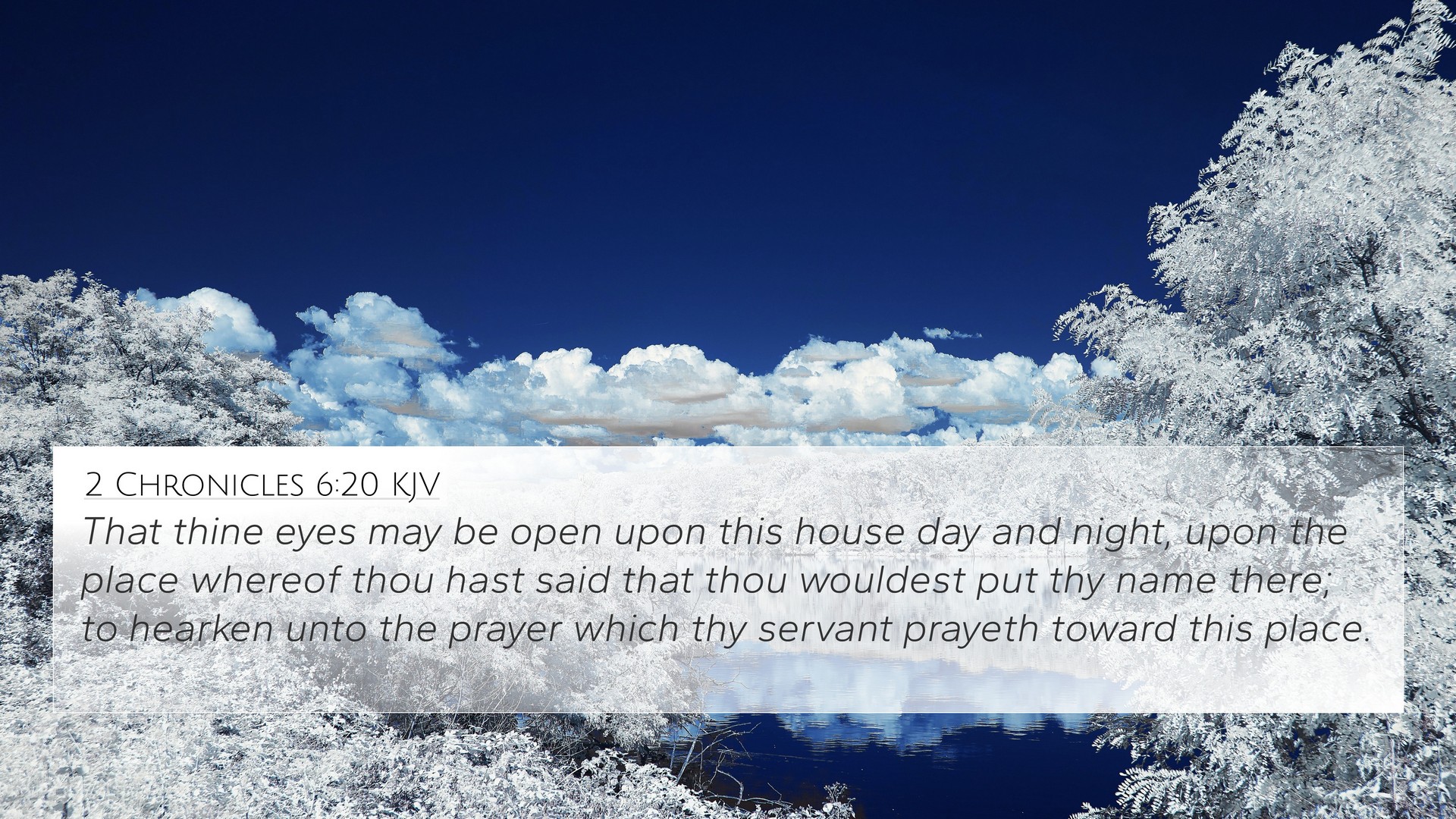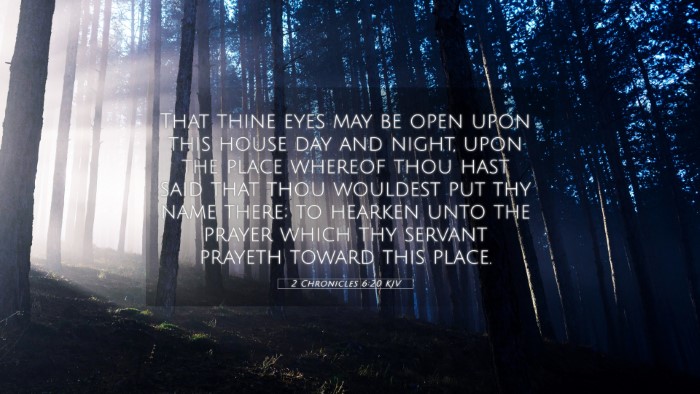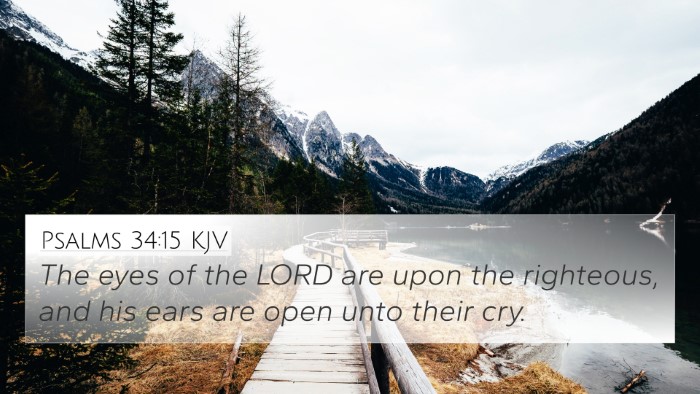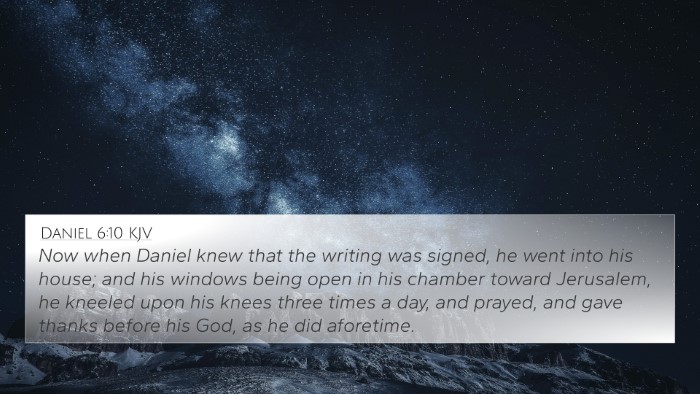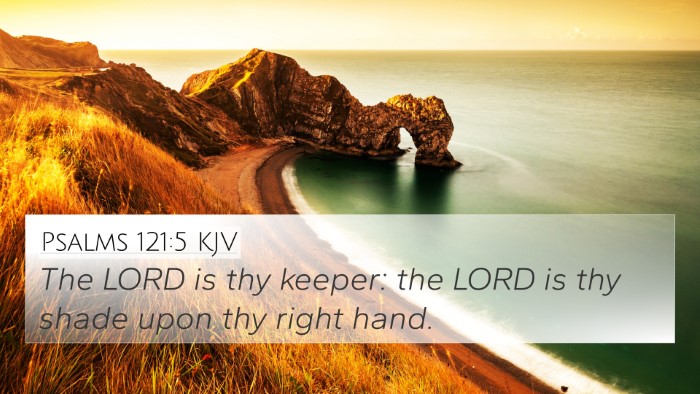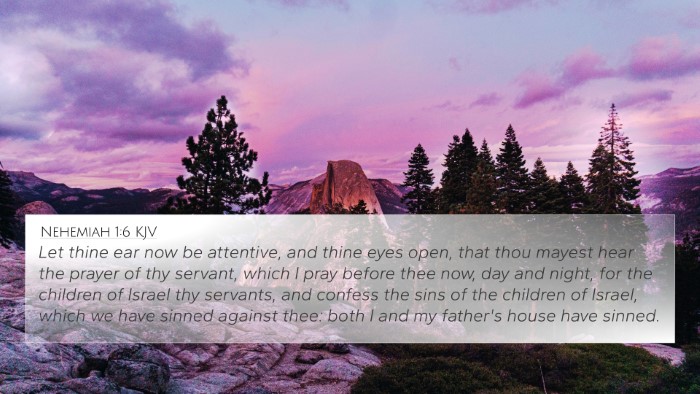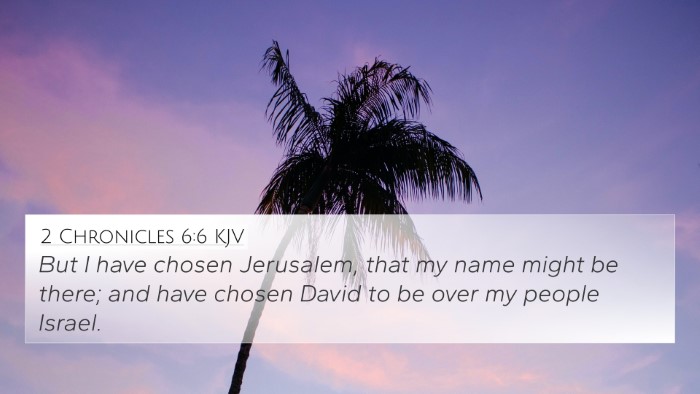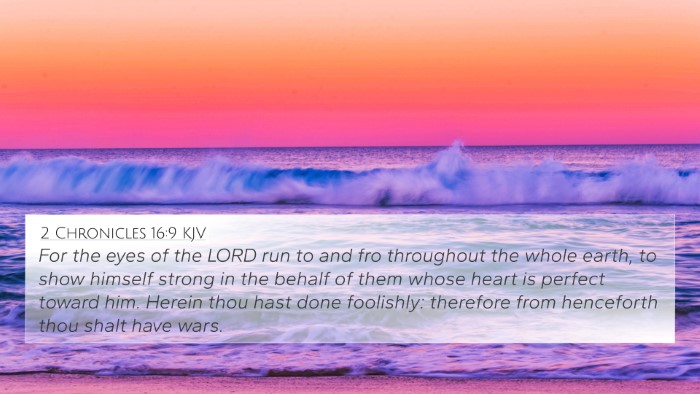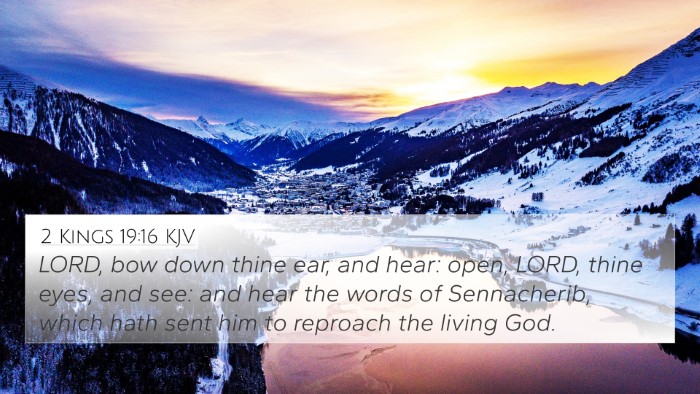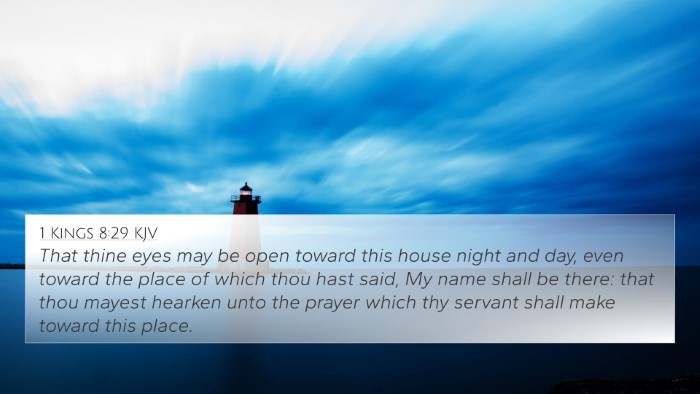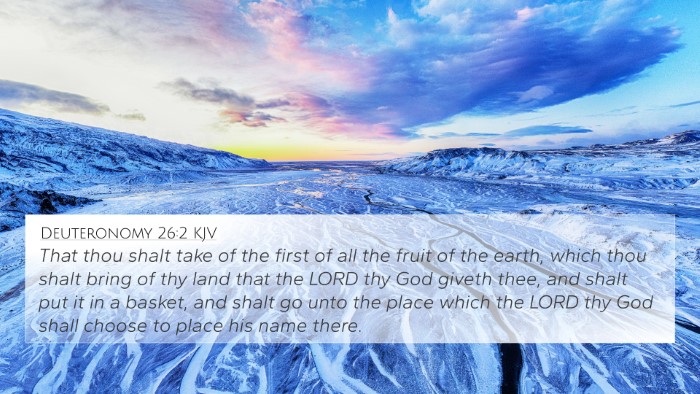Bible Verse Interpretation of 2 Chronicles 6:20
Verse Text: "That thine eyes may be open upon this house day and night, upon the place whereof thou hast said that thou wouldest put thy name there; to hearken unto the prayer which thy servant shall make toward this place."
General Overview
The verse in 2 Chronicles 6:20 serves as a profound moment in Solomon’s dedicatory prayer for the temple he built in Jerusalem. It emphasizes God's promise to regard the temple as a sacred space, a dwelling of His presence and attentive to the prayers made therein. The depth of this verse encapsulates themes of divine attention, the significance of places of worship, and the nature of prayer.
Insights from Public Domain Commentaries
Matthew Henry's Commentary
Henry emphasizes the importance of God's continual watch over the temple as a symbol of His covenant relationship with His people. The imagery of God’s eyes being open signifies His readiness to listen to the prayers of those who seek Him. This underscores God’s desire for a dedicated relationship and responsiveness to the supplications of His people.
Albert Barnes' Notes
Barnes notes that the temple represents a physical manifestation of God's presence. The verse conveys the idea that prayer directed toward the temple is not merely about location but about a heartfelt approach towards God. The reference to God putting His name there highlights the significance of identity and belonging in the relationship between God and Israel.
Adam Clarke's Commentary
Clarke elaborates on the concept of prayer as an essential aspect of worship. He points out that the assurance of God’s attention "day and night" symbolizes an unceasing divine readiness to hear prayers—inviting the faithful to approach Him with confidence. This also reiterates the notion of the temple as not just a physical structure but as a focal point of hope and faith for generations.
Thematic Connections to Other Scriptures
The verse can be cross-referenced with several other Biblical texts that enhance its meaning and provide a comprehensive understanding of God's attentive nature towards His people and the sanctity of prayer.
- 1 Kings 8:29: "That thine eyes may be open toward this house night and day..." - This verse parallels 2 Chronicles 6:20 and provides a similar affirmation of God's attentiveness to the temple.
- Psalms 138:2: "I will worship toward thy holy temple..." - Highlighting the act of directing prayer towards God’s dwelling place.
- Isaiah 56:7: "For mine house shall be called an house of prayer for all people." - Emphasizing the universal aspect of prayer connected to the temple.
- Matthew 18:20: "For where two or three are gathered together in my name, there am I in the midst of them." - God's ongoing presence where faith is shared in prayer.
- 1 John 5:14: "And this is the confidence that we have in him..." - This connects to the theme of confidence in approaching God with prayers.
- James 5:16: "...the effectual fervent prayer of a righteous man availeth much." - Reinforcing the concept of prayer's power and effectiveness.
- Hebrews 10:19-22: "Having therefore, brethren, boldness to enter into the holiest by the blood of Jesus..." - Connecting the New Testament understanding of prayer and access to God.
Conclusion and Reflection
2 Chronicles 6:20 is a vital verse that emphasizes God's attentiveness to the prayers made toward the temple, establishing a dialogue between the Divine and the faithful. The connections between Bible verses highlighted above unveil the continuity of God's relationship with humanity through prayer across both the Old and New Testaments.
As believers seek to understand prayer in their lives, they can utilize tools for Bible cross-referencing, such as Bible concordance and a Bible cross-reference guide, to delve deeper into these themes and enhance their spiritual practices.
